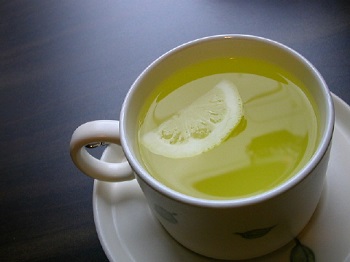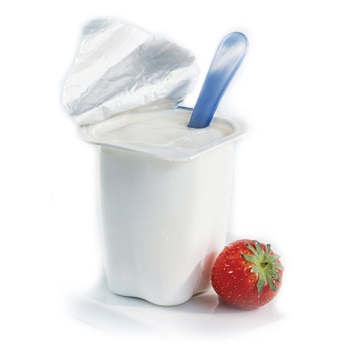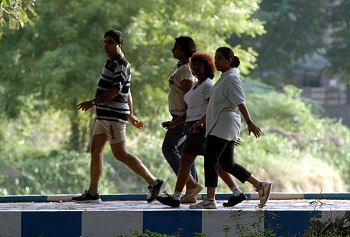It’s the time to make merry, even as your digestive system cries for help. Read on for some natural remedies.
by Sharad Panjwani
 Minutes after you finish your meal, you experience mild aches or heaviness in your stomach. You may even experience flatulence, and though it is not a condition that seriously affects your life, it is irritating and sometimes embarrassing.
Minutes after you finish your meal, you experience mild aches or heaviness in your stomach. You may even experience flatulence, and though it is not a condition that seriously affects your life, it is irritating and sometimes embarrassing.
Too often we rely on OTC drugs and quick fixes when dealing with random stomach pains or even long-term digestive issues. But with natural remedies, you can say goodbye to your digestive maladies and you won’t suffer any side effects either. Says general practitioner Dr Vaibhav Shetty, “People tend to ignore conditions like flatulence or stomach pains and bloating after meals. They feel that it isn’t something serious – but even if it is not serious, it should not happen at all. Many times, wrong eating habits, or eating the wrong foods, or even a sedentary lifestyle may cause digestive problems.”
Pay attention to any changes in your body’s responses to food, drink and lifestyle, Dr Shetty says. “Our digestive system normally rings the first alarm bell in response to deeper issues. Ignoring a problem only makes it worse,” he says.
But natural remedy practitioners believe that treatments begin at home. “Our ancestors knew what they were doing when they used herbs, flowers, leaves and roots in medicine,” says holistic practitioner Deepali Udhas. “There are many herbs that can treat our digestive ailments simply and without causing harmful side-effects.”
Herbal infusions: These are extremely useful for those suffering from gas and bloating. They absorb the extra gases arising in the intestines during digestion, calm the stomach and  also remove toxins from the blood. Those suffering from irritable bowel syndrome and intestinal infections can benefit from infusions of lemon, basil, ginger, peppermint and chamomile. Simply steep for 10 minutes in hot water, strain and drink at least twice a day, generally an hour after meals.
also remove toxins from the blood. Those suffering from irritable bowel syndrome and intestinal infections can benefit from infusions of lemon, basil, ginger, peppermint and chamomile. Simply steep for 10 minutes in hot water, strain and drink at least twice a day, generally an hour after meals.
If your problem is a chronic one, you might have to take a supplement comprising the herbs triphala and guggul twice a day, apart from taking a herbal infusion.
Candida in the digestive tract: Candidiasis, if left unchecked, can cause havoc with your digestion. Though it is not very serious, it can be difficult to control, especially with a poor diet.
Instantly eliminate sugar from your diet, even sugars from fruit such as chikoos and mangoes. Yes, this can be tough in this season, when everybody’s making and offering you sweets, but in the long run, your system will only thank you for resisting sugar. Stay away even from honey and sweeteners.
Cleanse your system with a cup of green tea first thing in the morning. After every meal, chew on fennel seeds and drink a glass of warm water. If you have been suffering painful stools, it is a good idea to stay away from processed foods altogether, as also red meat and egg yolk. Try a stomach cleanse treatment from a recommended Ayurvedic or panchkarma practitioner.
 Superfoods that help: Following a practice of eating a cup of yoghurt with every meal will go a long way in alleviating your digestive problems. Avoid mixing sugar or salt in your yoghurt when you eat it. For those with loose motions connected to drinking milk or eating processed foods, a bowl of yoghurt on an empty stomach will calm the system to a great extent and help digestion.
Superfoods that help: Following a practice of eating a cup of yoghurt with every meal will go a long way in alleviating your digestive problems. Avoid mixing sugar or salt in your yoghurt when you eat it. For those with loose motions connected to drinking milk or eating processed foods, a bowl of yoghurt on an empty stomach will calm the system to a great extent and help digestion.
Also add a dash of lemon juice to your sabzi or even your morning omelette – the enzymes in lemon break down toxins in the system and aid digestion. Other foods to help digestion are onions, garlic, flax seeds, papaya, pineapple, pumpkin seeds, cabbage, oily fish, leafy vegetables and steamed broccoli.
Keep your kidneys happy: Doctors recommend that a glass of warm water first thing in the morning revs up the kidneys to start working efficiently. If you can, try and eliminate sugar from your first cup of tea or coffee of the day – sugar makes the kidneys work harder. Also try cutting down your intake of salt for the same reason. The best way to keep your kidneys working well is to drink lots of water throughout the day and not hold the urine in for more than a few minutes after you feel the urge to use the restroom.
Exercise: Even a brisk walk will eliminate toxins from the body through sweat. Every morning, before the sun rays become too harsh, go for a brisk walk after drinking a glass of warm water to which is added the juice of one lemon and a teaspoon of honey. Not only will this drink attack the fat cells in the abdomen area, combined with physical activity, it will get your  system up and running for the meals that are to come later in the day. After every meal, take a short leisurely walk so that your digestive system doesn’t become sluggish.
system up and running for the meals that are to come later in the day. After every meal, take a short leisurely walk so that your digestive system doesn’t become sluggish.
Do not sleep on a full or empty stomach: The number of hours that we sleep, our timings, and whether we sleep right after a meal, all determine how our food will get digested.
Ideally, you should sleep two hours or later than the time you have your dinner. After you wake up, you should consume breakfast within an hour. Putting too much food into your stomach or eating too little or too late can all disturb your digestive rhythms. Not paying attention to these details will cause gases to develop in the stomach.
Stay happy: Research has shown a direct link between a person’s mood and his or her appetite and digestion. Try to remain calm even under stressful situations, and never take work home. Your meal times should not see you stressed or anxious, because it causes the system to slow down. Switch off your phone when you’re eating, hang out with positive people that make you laugh, or if you are alone during meal times, read a good book or listen to peppy music.
Have a question? Want a diet plan for the season? Write to us at editor@themetrognome.in or in the comments section below, and we’ll get your query answered by a doctor.
(Pictures courtesy www.divavillage.com, www.ectopic.org.uk, juliequilts.blogspot.com, www.thehindu.com)




